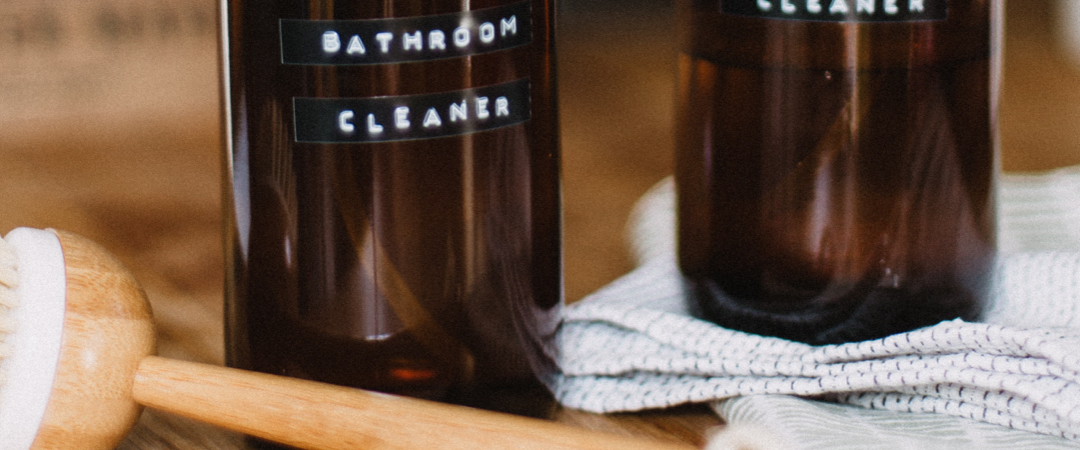The hidden toxins under your sink
- According to a study published in the American Thoracic Society’s American Journal of Respiratory and Critical Care Medicine regular use of cleaning sprays has an impact on lung health comparable with smoking a pack of cigarettes every day.
- Fragrances added to many cleaners, most notably laundry detergents and fabric softeners, may cause acute effects such as respiratory irritation, headache, sneezing, and watery eyes in sensitive individuals or allergy and asthma sufferers.
- The National Institute of Occupational Safety and Health has found that one-third of the substances used in the fragrance industry are toxic. But because the chemical formulas of fragrances are considered trade secrets, companies aren’t required to list their ingredients but merely label them as containing “fragrance.”
- Chemicals that are so-called “hormone disruptors” can interfere with the body’s natural chemical messages, either by blocking or mimicking the actions of hormones.
Environmental impact
- After bubbly cleaning liquids disappear down our drains, they are treated along with sewage and other waste water at municipal treatment plants, then discharged into nearby waterways. Most ingredients in chemical cleaners break down into harmless substances during treatment or soon afterward. Others, however, do not, threatening water quality or fish and other wildlife.
- A big water pollutant are phosphates, water-softening mineral additives that were once widely used in laundry detergents and other cleaners. When phosphates enter waterways, they act as a fertilizer, spawning overgrowth of algae. This overabundance of aquatic plant life eventually depletes the water’s oxygen supply, killing off fish and other organisms.
- The plastic bottles used to package cleaning products pose another environmental problem by contributing to the mounds of solid waste that must be landfilled, incinerated or recycled.
Safe and simple store-cupboard ingredients like soap, water, baking soda, vinegar and lemon juice, aided by a little elbow grease and a coarse sponge for scrubbing, can take care of most household cleaning needs. And they can save you lots of money wasted on unnecessary, specialist cleaners!
Simple soap surface spray
- 1 cup (235ml) distilled water (boiled and then cooled)
- 1 tbsp liquid castile soap
If you have castile soap in bar form rather than liquid soap, you can grate it and dissolve it in water.
If you want to customise the scent of your cleaner, you can use unscented castile soap and your own combination of essential oils.
What is castile soap?
Castile soap is a vegetable soap traditionally made from 100 percent pure olive oil, water, and lye. It is a vegan product because it doesn’t include the addition of animal fats as some other soaps might. Castile soap is available in bar or liquid form.
- Several modern formulations have tweaked the time-honored original recipe with the addition of other natural ingredients:
-
- Aloe vera gel (for moisturizing benefits)
- Butters (shea butter)
- Essential oils (peppermint, lavender)
- Natural antioxidants and preservatives (rosemary extract, citric acid, vitamin E)
- Salt (used in bar soaps to make them harder and last longer)
- Vegetable oils (hemp, coconut, avocado oils)
-

Easy vinegar cleaner
- 1/2 cup (118ml) white vinegar (distilled)
- 1/2 cup (118ml) distilled water
- 12 to 24 drops of essential oils
The low pH and acetic acid content of vinegar hinder the growth of microorganisms. Vinegar cleaner is, therefore, a mild antiseptic. Also, the essential oils add additional antibacterial, antiviral, and antifungal qualities to your all-purpose cleaner. It’s also great for mirrors and glass!
Do not use vinegar cleaners on marble, granite, and other natural stones, such as those used in countertops and floors. The acids in vinegar can dull and etch stone surfaces. Take care on hardwood floors, as some finishes can be damaged by vinegar.
Fizzy toilet cleaning bombs
- 1 cup (240g) bicarbonate of soda
- 1/4 cup (60g) citric acid
- 1 tsp white vinegar
- 15 to 20 drops of essential oils
Add the bicarbonate of soda to a mixing bowl. Bicarb naturally cleans and eliminates odors, making it the perfect base for the fizzies. Add the citric acid and stir. The citric acid adds the fizz to these cleaners.
Now SLOWLY drop by drop, add vinegar to the powders and mix. If you add it all at once, you’ll have a big fizzy mess!
Now add the essential oil and gently mix. This is just for scent, so you can choose any scent you like.
Use a spoon to scoop the mixture into your candy molds, and press in gently with your fingers. You don’t want to fill them completely full, because this will expand. Let dry for at least 6 hours or overnight.
Place the dried toilet bombs in an airtight container. Make sure you label them and keep them out of reach of small children!

